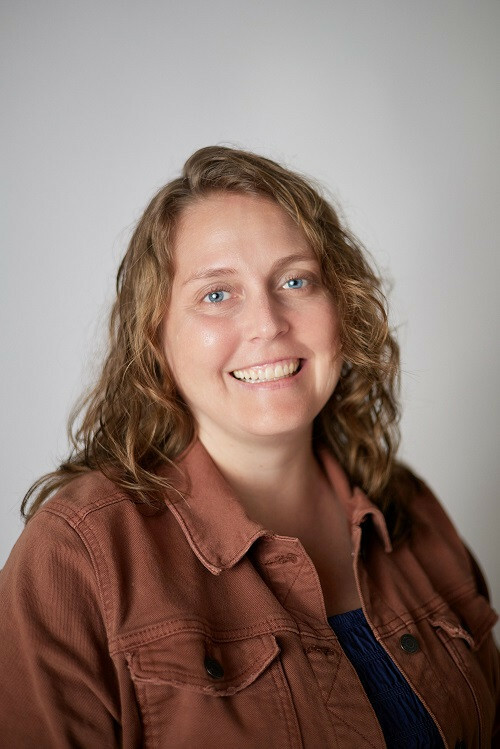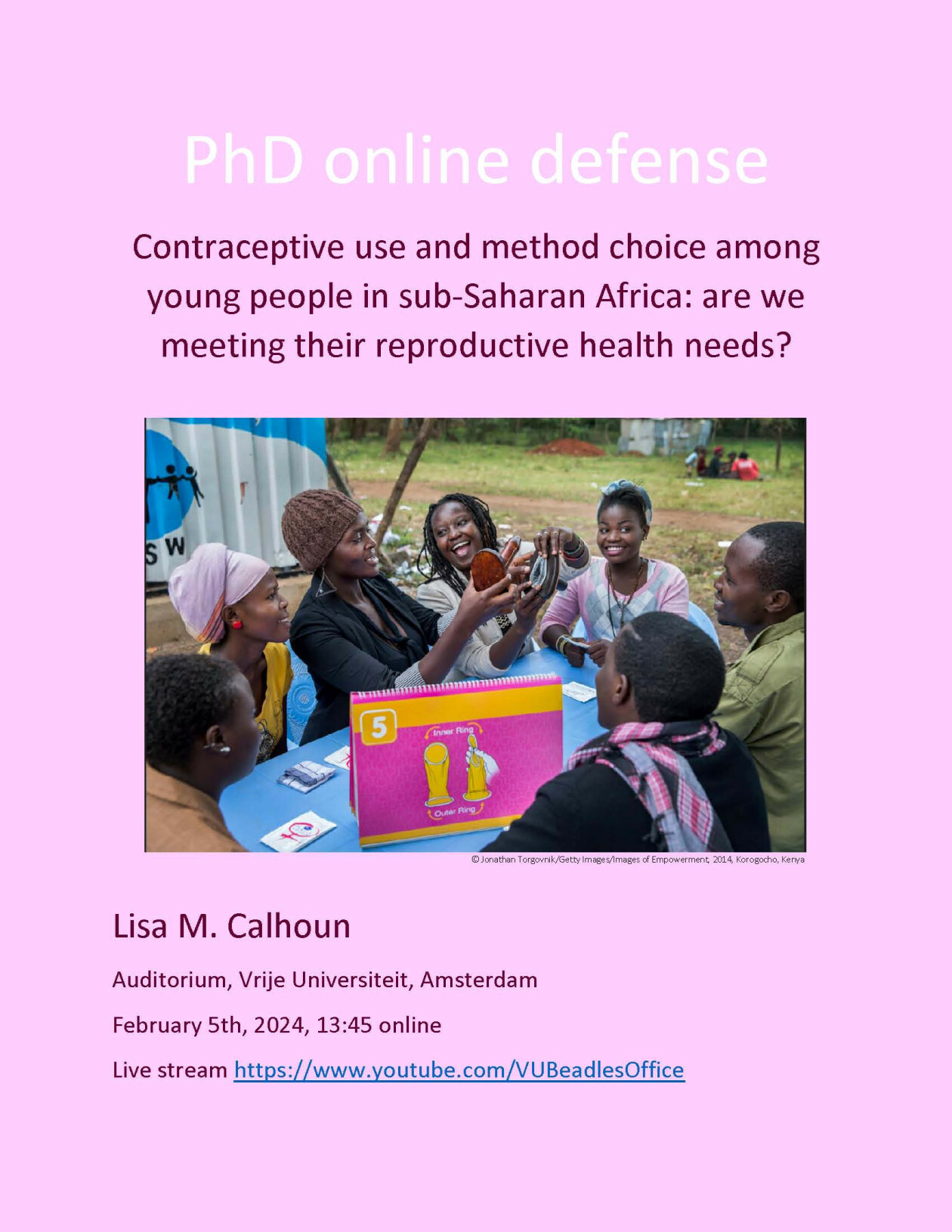PhD defence Lisa Calhoun
Vrije Universiteit Amsterdam, Hoofdgebouw Auditorium, De Boelelaan 1105, 1081 HV Amsterdam, Netherlands
Toon route
Supervisors
Prof. Dr. Lenka Benova (ITM)
Prof. Dr. Thomas van den Akker (Vrije Universiteit Amsterdam, Netherlands)
Dr. Thérèse Delvaux (ITM)
Summary
Family planning (FP) has been shown to have numerous health and social benefits for women, men and their families, including reduction of infant and maternal mortality, improved health of children due to birth spacing, and enabling young women to remain in school or pursue income generating activities. Yet, there are gaps in access to and use of voluntary contraception. This is, in part, due to the diverse reproductive needs of women throughout their life course, and the need for tailored, evidence-based interventions that meet their needs. Young women and men face unique, context-specific barriers to contraceptive use, such as knowledge gaps, provider bias, and lack of access. Understanding the influences and barriers that young women and men face to accessing the contraceptive method of their choice can be instrumental in ensuring young people can plan and manage their families and lives.
The Full Access, Full Choice project is a Bill & Melinda Gates Foundation funded project that aims to generate and synthesize evidence on contraceptive method choice among adolescents and youth in sub-Saharan Africa and Asia. The focus is on leveraging secondary data from a pool of grants to answer key global learning questions about how to increase access to and improve voluntary use and free choice of contraception among adolescents and youth. Additionally, the project collected targeted primary data, mostly qualitative data, to answer outstanding learning questions in Kenya, Niger and Burkina Faso. The project developed a high-level theoretical framework that described influences on contraceptive use and choice at multiple levels: enabling environment, demand and individual level, service delivery and outcomes. This thesis is comprised of five peerreviewed manuscripts, serving as the empirical chapters, that respond to the global learning questions by utilizing primary data from Kenya and Niger and BMGF grantee data from Kenya and Ethiopia.
The general objective of this thesis is to explore the influencing factors and barriers to AGYW (ages 15-24) accessing and using the contraceptive method of their choice in Ethiopia, Kenya and Niger. The empirical findings in this thesis fall along three points of the theoretical framework that was designed by the FAFC project: enabling environment, demand and individual characteristics and the service delivery environment. Each chapter explores a different learning agenda question. Chapter 2 describes the influence of perceptions of peers’ contraceptive use on contraceptive method choice among male and female youth. In Chapters 3 and 4, qualitative data from a study in Kenya describes contraceptive use trajectories throughout adolescence as well as explores decisionmaking regarding method choice and where to obtain the method. In Chapter 5, we qualitatively explore what factors influence client satisfaction with FP services in Niger. Finally, the association between receipt of FP information and contraceptive use along the maternal, newborn and child health continuum of care among young women in Ethiopia is explored in Chapter 6.
Schedule
Defence: 1.45-3.45 pm
Online link: https://www.youtube.com/VUBeadlesOffice

Spread the word! Deel dit evenement op